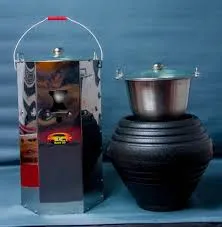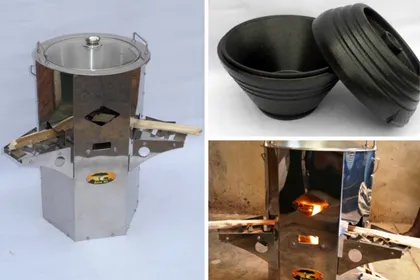Today, 2.3 billion people worldwide - nearly one third of the global population - still cook their meals over open fires or on basic stoves, breathing in harmful smoke released from burning coal, charcoal, firewood, agricultural wastes, and animal dung. These practices can still be found in 128 countries today - where households do not have the tools or means to reliably cook meals using clean burning fuels. Even the simplest, widely available cooking devices could improve this situation, including devices like camp stoves using liquefied petroleum gases (LPG) and electric hotplates.
A lack of clean cooking contributes to 3.7 million premature deaths annually, with women and children most at risk. Poor indoor air quality is a leading cause of premature death worldwide. In Africa alone, women and children account for 60% of early deaths related to smoke inhalation and indoor air pollution. This is primarily the result of basic cooking practices that lead to respiratory complications and cardiovascular diseases.
Women disproportionately endure the negative consequences of rudimentary cooking, while afforded limited ways to change to cleaner solutions. In addition to health risks, a lack of clean cooking prevents many women and girls from accessing education, earning a wage or starting a business that would deliver financial autonomy. In many parts of the world, they typically have little say over household spending, with other purchases prioritised over clean cooking devices. Under-representation of women within executive institutions means that clean cooking also remains low on the political agenda.
For more information about this important energy solution in the Global South, you can read the IEA report:



